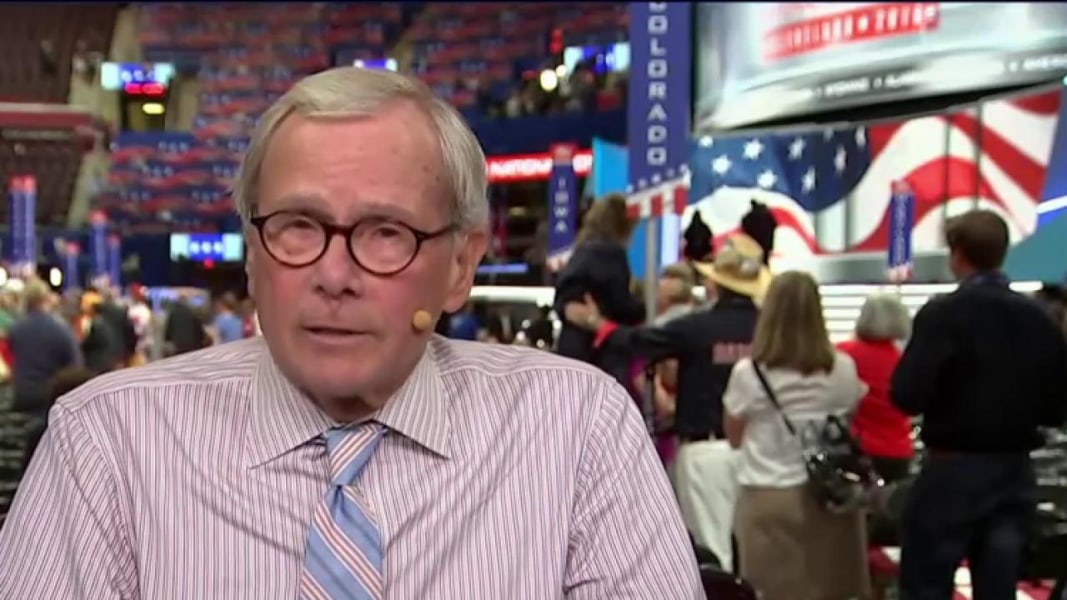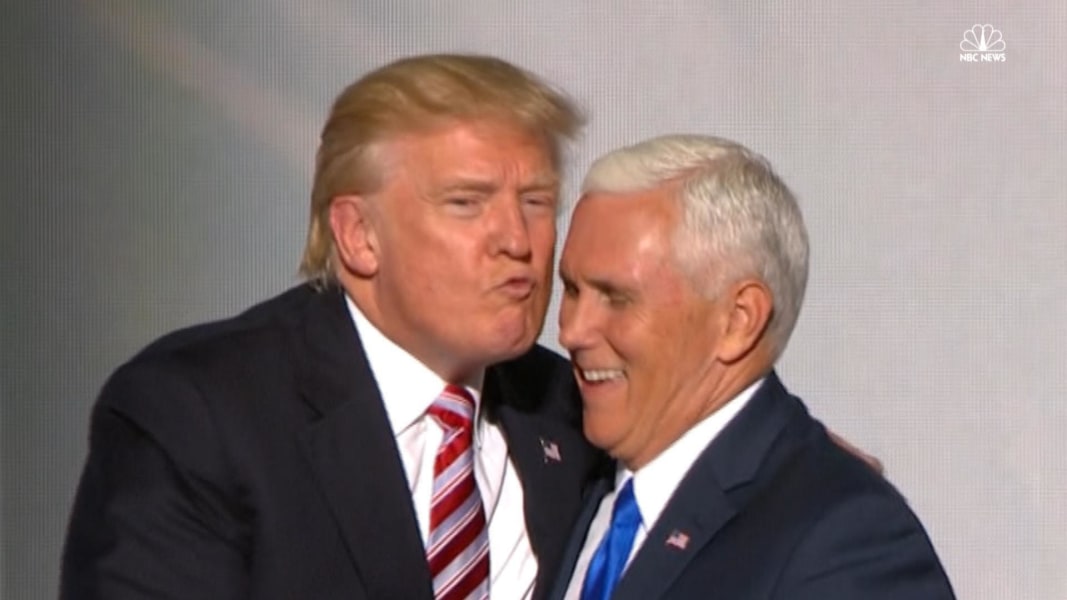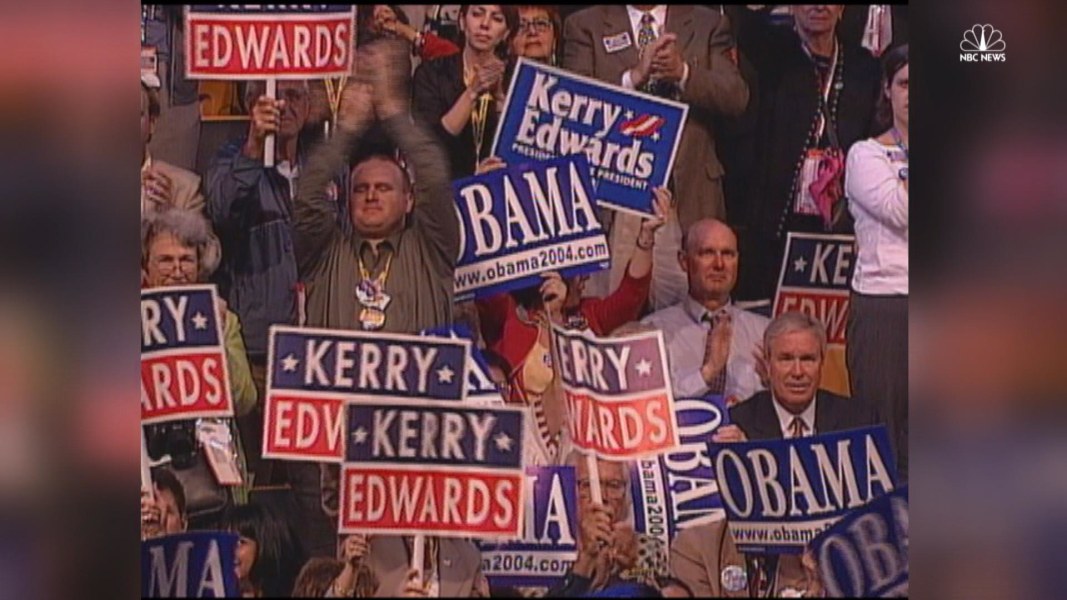As the dust settles -- and the balloons deflate -- from this week's RNC in Cleveland, pundits and voters are grappling with the substance of what they saw.
Will this convention be defined by its self-inflicted gaffes, like Melania Trump's apparently plagiarized speech? Will it be the launching pad of a new political family dynasty headlined by Donald Trump, Jr., Eric Trump and Ivanka Trump -- all of whom gave well-received addresses? Did Donald Trump himself, a self-described billionaire who has a record of outsourcing jobs overseas, effectively cast himself as a champion for the American working man? Will Sen. Ted Cruz's controversial "vote your conscience" speech be retroactively viewed as prescient instead of an act of political self-destruction?
What is evident is that unless you count Rudy Giuliani's aggressive performance or Chris Christie's kangaroo-style court indictment of Hillary Clinton, this convention was surprisingly bereft of breakout stars or moments. Certainly, Trump's lengthy and tonally ominous acceptance speech has people talking, but historically there are usually non-nominee politicians who use the convention as launching pad, or at least try to.
Here are some famous examples from the past 40 years of convention speeches delivered by politicians who weren't even their party's nominee that had real impact.
Barbara Jordan, 1976
The Texas lawmaker and breakout star of the Watergate hearings was the first African-American woman to give a keynote address at a national convention, and she made the most of her moment in the spotlight -- delivering a moving and acclaimed ode to the Democratic Party's ability to champion the cause of unity. Her speech was so well-received that her name was floated as a long-shot choice to be nominee Jimmy Carter's running mate, and she eventually did receive a single delegate's vote for president that year.
Ted Kennedy, 1980
After their bitter primary fight, the tension at the DNC in 1980 revolved around how and when then-President Jimmy Carter and Sen. Ted Kennedy would make up. At the convention, Kennedy delivered perhaps his most stirring and famous piece of oratory -- "the dream shall never die" speech -- but never offered a full-throated endorsement of Carter, only congratulating him on his victory. When his address was over, Kennedy tried to avoid physically embracing the president who trailed behind him awkwardly. Carter would later allege in his private journal that his primary opponent had been drinking that night. While the speech is remembered as one of the most inspirational in recent political history, Kennedy's tepid support for the incumbent helped doom him in November.
Mario Cuomo, 1984
The late New York governor significantly raised his national profile with his eloquent rebuttal to President Reagan's romanticized "city on a hill" remarks. Cuomo effectively disseminated what Democrats saw as the hollowness of the Reagan era's economic recovery in his keynote address in 1984. "A shining city is perhaps all the president sees from the portico of the White House and the veranda of his ranch, where everyone seems to be doing well," he said. "But there's another city ... the part where some people can't pay their mortgages, and most young people can't afford one; where students can't afford the education they need, and middle-class parents watch the dreams they hold for their children evaporate." Cuomo's speech was so well-received it kicked off nearly a decade of speculation that he would seek the presidency, and infamous indecision on his part about whether he would. He ultimately would never mount a White House bid.
Bill Clinton, 1988
A baby-faced, 41-year-old Bill Clinton, then governor of Arkansas, flopped in his featured role at the 1988 DNC, where he was tasked with introducing nominee Massachusetts Gov. Michael Dukakis. The characteristically long-winded Clinton went on for a full 33 minutes, and drew uncomfortable cheers when he said "in closing." At the time, the perception was that Clinton had pre-emptively short-circuited his promising political career. But in an early glimpse of his dexterity, he had fun lampooning the poorly received address during a subsequent appearance on "The Tonight Show starring Johnny Carson." Of course, Clinton would get the last laugh -- he would be the nominee and eventual victor himself in just four years.
Pat Buchanan, 1992
The former-speechwriter-turned-fiercely-conservative-commentator brought his insurgent campaign for the White House to the RNC in 1992, and delivered a polarizing speech, which provided red meat for the far right of the GOP, but appeared to be out of the step with the more moderate populace. Buchanan railed against the Democrats' -- and the Clintons' -- advocacy for "homosexual rights" and "women in combat units" in a speech that centered on what would be labeled the "culture wars." Buchanan's rhetoric would become more mainstream orthodoxy in the party in the ensuing years, his speech illustrated the growing gulf between the two major parties on social issues, and his "Make America First" ideology has a direct descendant in Trump.
Barack Obama, 2004
Prior to his iconic keynote address at the DNC in 2004, Obama was a little known, but promising, young state senator from Illinois. But after the "son of a goat herder" delivered his impassioned, unapologetically patriotic plea for a United States of America as opposed to a country split between red and blue political party lines, he became a household name and an overnight sensation. The speech would be credited with propelling Obama to the U.S. Senate and eventually the White House. And although his vision of a post-partisan utopia hasn't materialized, the speech suggested that there was a national appetite for consensus-building.
Zell Miller, 2004
That same year, the conservative Democratic senator from Georgia, Zell Miller, gave a speech that couldn't have been further removed from Obama's in terms of its tone and delivery. Ironically, Miller had been the keynote speaker for the Democrats in 1992, but in 2004 he crossed over to support the Republicans. In a furious, some would argue vicious, speech, he accused Democratic nominee Sen. John Kerry of wanting to arm the U.S. military with nothing more than "spitballs." Following his speech (which some Republicans quickly distanced themselves from), a still-incensed Miller would challenge MSNBC's Chris Matthews to a duel for questioning his rhetoric.
Martin O'Malley, 2012
The Maryland governor and former Baltimore mayor had long been a trendy pick for a future VP or presidential nomination when he spoke at the DNC in 2012, but his relatively uninspired speech and presence muted the hype that had once been attached to his name. Perhaps had he given a more memorable address, O'Malley's 2016 campaign would have generated more excitement in a race where the front-runner was decidedly unpopular and his other chief rival was a 74-year-old socialist.









原文地址:价值观才是人和人之间最深的鸿沟作者:假装在纽约
每一次热点新闻,社交媒体都会变成热闹的战场。有人热血沸腾慷慨激昂,也有人冷眼相看出语相讥。
在生活中我们不会随便和别人聊起自己对某件事的看法,但是有了社交媒体以后,我们的大脑像是装上了一扇窗,路过的每一个人都可以瞥上一眼。不管是亲友爱人,还是几年十几年没有见过面的中学同学,或者是曾经帮你租过房子的中介,都能够知道你的想法,你完全无所隐藏。因为你转发的每一篇文章,你复制粘贴的每一条段子,分享到群聊天里的每一张图,都清清楚楚地表明了你的观点、倾向和态度。
你发出的每一条状态,不管立场如何,不管有多少人点赞,必然会有另一些人不快,觉得受到了冒犯。那些冲上来和你辩论,或者激烈地屏蔽取关拉黑的人还算好的;更可怕的是你永远不会知道有多少人默默看着你发的状态,然后在心里翻了个白眼,“没想到竟然是这么一个傻X”。
当大家都在自由表达,自然会产生观念的冲突。生活中交集不多的人还好,但问题是那些对我们来说重要的人同样不可能和我们在每一件事情上都观点一致。分组是一个办法,但我们不可能在发每一条状态时都分一次组。在这件事上称赞你三观正,被你当成亲生的朋友放在特别分享组里,到了下一件事可能就是骂你骂的最凶的人。
因为观点不同而造成的人与人之间交往的困扰,美国人比我们感受得更深。很简单的道理,因为美国有民主党和共和党,两个党的许多政策都有着根本性的分歧,支持民主党的人和支持共和党的人也很难坐在一起心平气和地对话。美国人的社交礼仪里有一点就是,不随便问别人的宗教信仰和政治观点,这是很不礼貌的行为。选举投票时,每个选民把票投在哪个票箱也是很重要的隐私,外人不能随便窥探。
在面对自己亲近的朋友或者朝夕相处的家人爱人时,到底支持共和党和民主党这件事就很难隐瞒了。尤其是到了每四年一次的大选年,矛盾就会更加激化,即使是在一个已经相对较为成熟的社会,父子大打出手、朋友变成路人、夫妻一拍两散这样的极端例子也难以避免。
所以每隔四年,美国的媒体上就会集中出现“政治倾向不同如何保证家庭美满”之类的指导文章。《华尔街日报》几年前曾经有一篇报道,讲一对结婚多年的老夫妻,丈夫是虔诚的共和党支持者,而妻子则是忠实的民主党信徒。在一次总统大选投票前,丈夫正巧要到国外出差,于是就把自己的选票填好交给妻子,让她代为邮寄出去。
妻子为此很苦恼,不知道是应该忠于丈夫把选票寄出去,还是应该忠于党把丈夫的选票扔了。犹豫了很久,她最终偷偷地把选票扔掉了。后来丈夫还是在无意中知道了这个秘密,为此记恨了妻子好几年,并且从此不再放心把自己的任何信件交给她。
引起争吵的话题各有不同,但归根结底是价值观的差异。美国人投票选总统,大多数人是真诚地相信自己选择的候选人能够维护国家利益和自己的个人利益。但到底怎样的政策、哪一个候选人才符合国家利益和个人利益?是不是认同堕胎,是不是认同拥枪权,是不是欢迎更多的移民,是不是应该对富人多征税,是不是支持给同志合法结合的权利,是不是认为政府应该大包大揽包办医疗健康体系和福利制度?根据所有这些问题而做出的选择背后,就是人和人之间价值观的差异。
具体到南海问题也是如此。大多数人会同意南海问题的本质是国家利益问题,也没有人否认一个强大的国家和国民的个人利益是正相关的关系。但到底怎样的国家才算是强大的国家?嚷嚷着要抵制菲律宾、抵制美国、抵制全世界的人,以及叫嚣着要不惜一切代价打仗、“犯强汉者虽远必诛”的人,到底是在维护国家利益还是反过来损害了国家利益?这些思维模式的背后,都可以看出一个人的价值观。
但价值观的问题其实又没有什么好讲。因为一个人的价值观根深蒂固,由他的心态、眼界和思考能力综合决定。就像是网上流传过的一句话说的,“无论挣了多少钱,当了多大官,出了多大名,读了多少书,甚至去了多少国家,在国外呆了多少年,骨子里的东西,包括狭隘无知的境界,都是难以改变的”。
所以放弃和别人争辩吧。接受吧,你永远没有办法改变另一个人的想法,正如你知道他永远不可能改变你的想法。尤其是在社交网络上,所有的争辩都是浪费彼此的时间。大多数人缺乏足够的勇气和智慧来真诚审视自己固守了多年的信仰,因为那是他所有一切的根基,一旦发生动摇就意味着他整个人生要推倒重来。为了逃避这一切,他们愿意相信扭曲的事实、构建一个个逻辑陷阱,用尽一切手段来维护他们内心深处的堡垒。
最好的做法不是闭口不谈。每个人都有自由表达的权利,这是一件光明正大的事。人生本来就已经很累了好吧,我并不想在自己的圈子转个帖还要自我审查,还要偷偷摸摸,还要顾忌别人是不是会受到伤害。
我们能做的就是彼此忽略。我知道你不同意我的观点,但我不会试着说服你,我没有这样的权利,也没有这样的义务,更没有这样的耐心和时间。你也不用试图说服我,没必要,你保留你的看法就好。
更好一点的心态,是试着去尊重和理解。这听起来有点荒谬,做起来也有点困难,但如果你愿意冷静地想一想对方生活在什么样的环境里,从小接受了什么样的教育,走过了什么样的一条路,那他有那样的看法、眼界、观点和价值观,就不是那么让人不可思议难以接受的一件事。对于价值观和我们不一样的陌生人,我们可以挥挥手就此别过,但对于亲近的朋友家人,这样的理解也许是唯一能够不影响彼此关系的做法。
《华尔街日报》提到的那对夫妻后来还发生了一段小插曲。在丈夫六十岁生日的时候,妻子给丈夫制作了一本生日纪念册,里面收集了亲朋好友的留言和祝福。她还给当时的总统小布什写了一封信,请求小布什给自己的丈夫也写一段祝福的话。她在信里说,“我的丈夫是你忠实的粉丝,过去整整八年我一直听他在唠叨你多么多么好,所以这是你欠我的。”小布什很快就回信祝这个丈夫生日快乐,妻子也把这封信收进了生日纪念册。不过尽管如此,两个人后来在看共和党大会的直播时,为了避免吵起来仍然呆在不同的房间里。
那篇报道还提到了另一对结婚45年的老夫妻,有一天丈夫走进厨房,发现妻子在墙上挂上了小布什的照片,他很生气,就把相框翻了个面,倒扣在墙上。妻子发现之后,又把相框重新翻了回去。第二天,丈夫接着翻相框,妻子接着翻回去。这对老夫老妻就把这样的拉锯战坚持了好几年,到最后,他们彼此都习惯了这样的仪式。73岁的老先生在接受采访的时候说,“她挂上相框,其实只是想引起我的注意。而我把相框翻过去,只是想告诉她,我知道了。”
两对夫妻都在一起生活了几十年,但最终他们谁都没有办法改变自己另一半的政治倾向,只能努力去接受,并且把这样的差异变成生活情趣。这其实需要很高的情商和智慧。
当然,最好的状态,还是能够找到那些和你有一样价值观的人,因为价值观是一种迷人的东西。能够把人和人在更深的层面联系在一起的,绝不是那些可以被轻易贴上的标签。不是你们上过同一间学校,来自同一个城市或国家,有同一个星座或血型,你们就能彼此喜欢。能够维系你们的,只能是同样的信仰,准则与价值观。
价值观体现在每一个细节里。对某个事件的看法,对某个人的评价,某本书或者某部电影的好恶,都可以把你和一些人紧紧联系在一起,同时又把你和另一些人泾渭分明地分开。
面对一些人,一些事,当你激动不已而别人不明就里,当你义愤填膺而别人无动于衷,你和他们之间,就有了一条微妙的界河,而这条界河,其实是人和人之间最深的鸿沟。
愿你能够找到另一些和你有一样价值观的人。因为如果可以选择的话,相信没有人愿意和要在挂谁的相框这件事上和自己斗争一辈子的人生活在一起。